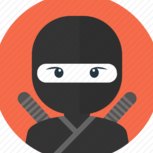Hi, I am new to these forums as was wondering if I could get some help or pointers in the right direction? I am an aspiring game developer looking to learn 2D game development and was wondering what the best platform to start learning is? The project I eventually have in mind and want to work towards being able to create is a sort of Harvest Moon/Stardew Valley style farming sim with light RPG elements, not going to go too complex with graphics, going to be a simple 16bit 2D sprite based artstyle, was wondering what the most suitable platform for this type of project (or learning to eventually be able to create this type of project) would be?
My current level of skill and ability, I know the basics of Java and Javascript (mostly Java) but am relatively unfamiliar with other programming languages, I know enough about photoshop to be able to create basic 2D art assets for games.
Currently I am trying to wrap my head around libGDX however I am finding that a lot of the tutorials and guides online are woefully outdated, most of the stuff taught turns out to be wrong and while I can find the answer to my current problem most of the time by searching online my code and the way I set up projects is completely different to what is explained in the tutorial making them incredibly difficult to follow along with. I have considered buying books on the subject however reading reviews it seems even they are outdated making me wonder if I would just be wasting my time and money following along with them?
If anyone has any suggestions or can point me towards some good platforms or tutorials or give me a good idea where to get started it would be greatly appreciated.











